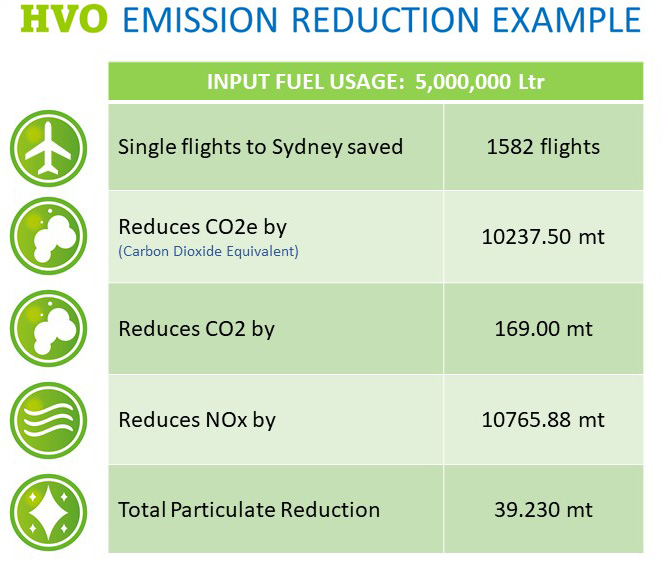Ford Fuels Ltd – Fuelcard Terms & Conditions1.DefinitionsIn these Terms and Conditions the following words, terms or expressions shall have the following meanings:-“Ford Fuels” means the company Ford Fuels Ltd who registered office is at The Oil Depot, Farrington Fields Trading Estate, Farrington Gurney, Bristol, BS39 6UU.“Authorised Cardholder” means a person to whom the Principle Cardholder has provided a card and who is authorised by the Principle Cardholder to use a card.“Card” means all cards issued to the Principle Cardholder by Ford Fuels.“Cardholder” means the Principle Cardholder and, where applicable, any Authorised Cardholder.“Diesel” means diesel engine road fuel.“Directory” means the list of Sites issued from time to time by Ford Fuels showing where the card can be used to obtain fuel.“Fuel” means Diesel, Gas Oil, Petrol and Lubricants.“Gas Oil” means fuel for use in any industrial or agricultural diesel engine and as a burner fuel.“Lubricants” means oil or grease intended for lubricating.“Petrol” means petrol engine road fuel.“PIN” means Personal Identification Number which shall be issued to every Cardholder for use with a card.“Principle Cardholder” means the partnership, limited liability partnership, firm, corporate body or other person to which cards are issued.“Site” means any services station or depot at which the Card may be used.“Vehicle” means the Principle Cardholder’s or Authorised Cardholder’s vehicle for which fuel is obtained details of which have been supplied to Ford Fuels.“Working Day” means Monday to Friday 9.00am to 5.00pm excluding public holidays2.Acceptance of Terms and ConditionsSignature of and / or use of a Card by the Principle Cardholder or an Authorised Cardholder constitutes acceptance of these Terms and Conditions3.Card Issue3.1The Card remains the property of Ford Fuels at all times and shall be returned by the PrincipleCardholder promptly at Ford Fuels request. Ford Fuels shall have the right to collect the card.3.2The Principle Cardholder shall be liable to Ford Fuels for the proper use of the card by the Principle Cardholder or any Authorised Cardholder prior to the return of a Card in accordance with condition 11.3.3The Authorised Cardholder shall be deemed to have been given authority to use the Card as a duly authorised representative of the Principle Cardholder and the Principle Cardholder shall ensure that the Authorised Cardholder complies with all these Terms and Conditions.3.4The card may contain the registration number of a Vehicle in which case it shall be used only to obtain Fuel for that Vehicle or where it does not contain a registration number it may be used for any Vehicle.3.5The Principle Cardholder shall return unexpired Cards that are no longer required, or where the Vehicle registration has changed to Ford Fuels requesting cancellation in writing.3.6Unless advised otherwise, Cards will automatically be replaced by Ford Fuels prior to expiry3.7The Principle Cardholder shall use its best endeavours to ensure that the Card is kept safe and undamaged. If damaged, the card must immediately be returned to Ford Fuels by the Principle Cardholder for replacement by Ford Fuels.4.Card Use.1A card shall not be valid unless the signature strip on the reverse of the Card has been completed in accordance with the instructions issued by Ford Fuels from time to time.2A card may only be used:(i)if it is a current Card which has not expired, been cancelled or which does not appear on the Ford Fuels Stop List;(ii)by a Cardholder to obtain Fuel up to the applicable facility credit limit issued in accordance with condition 6.(iii)to obtain Fuel up to the maximum value per transaction as specified by Ford Fuels from time to time;(iv)if the card has not been reported lost or stolen;(v)in the case of a staffed site if the Principle Cardholder or the Authorised Cardholder presents or shows the Card to the Site prior to obtaining Fuel;(vi)by any cardholder to obtain Fuel for the Vehicle identified on the Card (where applicable).4.3When using a Card;(i)to obtain fuel at an automated site, the Cardholder shall use the Card with its unique PIN (where applicable) in the designated machine. Each transaction will be recorded on a delivery voucher which will be dispensed to the Cardholder on completion of each transaction;(ii)to obtain Fuel at a staffed site, the cardholder shall use the card alone and the transaction will be recorded on a delivery voucher a duplicate of which will be dispensed to the cardholder on completion of each transaction.4.4It is the obligation of the Principle Cardholder or Authorised Cardholder to collect and retain any delivery voucher (duplicate or otherwise) issued at the time Fuel is obtained4.5When obtaining fuel the Principle Cardholder and any Authorised Cardholder shall comply with these Terms and Conditions and all procedural requirements of the Site in respect of the relevant card transaction and shall ensure that the Card is only used in accordance with condition 4.2.4.6If any procedural requirements are not complied with or the Card is used other than in accordance with these Terms & Conditions, the Principle Cardholder shall nevertheless remain liable to pay Ford Fuels for all amounts due to Ford Fuels under the relevant Card transaction.4.7Cards that identify Vehicles are issued to the Principle Cardholder as a management information tool to be used correctly by the Principle and Authorised Cardholders. Such cards do not provide additional security. The Principle Cardholder shall be liable to pay Ford Fuels for all amounts due to Ford Fuels under the relevant Card transaction, including where the transaction is in respect of a Vehicle other than that identified on the Card.15.PIN.1The Principle Cardholder and the Authorised Cardholder shall use the PIN if so required at an automated Site.2The PIN shall only be used by the Principle Cardholder and the Authorised Cardholder to whom it is supplied and shall not be disclosed directly or indirectly to any other person..3The PIN shall not be written on any card or delivery voucher or on anything kept with the Card.6.Account LimitFord Fuels shall impose and notify to the Principle Cardholder an overall facility credit limit and (where applicable and not in addition to) a daily credit limit on the use of the Cards and if any applicable financial limit is exceeded then, without prejudice to Ford Fuels right to recover all amounts due from the Principle Cardholder, Ford Fuels may terminate this agreement immediately on notification to the Principle Cardholder.7.InvoicingInvoices will be sent to the Principle Cardholder at the billing period intervals determined by Ford Fuels from time to time detailing Card transactions and any additional charges for the relevant billing period.8.Payment.1Unless indicated otherwise by Ford Fuels, payment shall be made by direct debit seven days following invoice.2If any amounts are not paid by the due date then (without prejudice to Ford Fuels right to terminate this agreement)(i)interest shall be payable on the outstanding balance at the rate set under s6 of the Late Payment of Commercial Debts (Interest) Act 1998.(a)calculated (on a daily basis) from the date of our invoice until payment(b)compounded on the first day of each month; and(c)before and after any judgment (unless a court order specifies otherwise);(ii)Ford Fuels may claim fixed sum compensation from you under s5A of that Act to cover our credit control overhead; and(iii)Ford Fuels may recover the cost of taking legal action to make you pay..3Any dispute relating to any delivery voucher or invoice issued by Ford Fuels must be notified to Ford Fuels in writing within 14 days of receipt..4Any payments made by credit card will be subject to a 2% processing charge which may be varied from time to time.9.No Set Off.1All payments made by the Principle Cardholder or any credits or refunds due to the Principle Cardholder shall be applied first in settlement of any interest due and secondly by Ford Fuels in its absolute discretion in reduction of any amount due to Ford Fuels on any account whatsoever..2No set off or counter claim against Ford Fuels shall be made in respect of any claim by the Principle Cardholder or any Authorised Cardholder.10.Charges.1Ford Fuels may charge the Principle Cardholder a fee on the issue of the Card and/or on the renewal or replacement of the Card and/or for administration each year commencing on the date of issue of a Card and/or on each use of the Card and/or for each purchase of Gas Oil, Petrol and Lubricants and/or on each use of the Card “Help Line”..2Such fees have been notified to the Principle Cardholder and can be increased by Ford Fuels on giving 30 days notice in writing to the Principle Cardholder.11.Cancellation of Cards.1Ford Fuels will cancel a Card if the Principle Cardholder requests cancellation in writing and encloses the relevant Card cut in half.2Ford Fuels may request the return of all/any Cards or cancel or suspend all/any Cards at any time without notice or refuse to reissue replace or renew any Card.3A request for return or cancellation or suspension is without prejudice to the Principle Cardholder’s liability in respect of use of any cards prior to the actual return of the relevant card to Ford Fuels cut in half.12.Lost or Stolen Cards.1If a Card is lost or stolen or remains in the possession of a person who has ceased to be an Authorised Cardholder the Principle Cardholder must immediately notify Ford Fuels at The Oil Depot, Farrington Gurney, Bristol, BS39 6UU or at any other address, email address, fax or telephone number as Ford Fuels may specify from time to time and also notify the police of the loss or theft and obtain a crime reference number or lost property reference number..2If notification of loss or theft of a Card is given verbally it must be confirmed in writing within one Working Day. Such notification must include the card number and the cardholders name and Vehicle details. Provided such notice is given before 1300 hours on a Working day, the Principle Cardholder shall be liable in respect of any delivery vouchers issued against the lost or stolen Card until one Working Day after notice in respect of automated sites capable of accepting “Stop List” updates via electronic data transfer or in the case of staffed sites 3 Working Days after such notice. If no such notice is given the Principle Cardholder shall remain fully liable..3The Principle Cardholder shall be liable in respect of any use of a Card by any Person before notification in accordance with condition 12.1. After Ford Fuels has been properly notified and provided that this condition 12 has been complied with in full, the Principle Cardholder shall have no further liability for Card transactions made with that Card other than for Card transactions made by the Principle Cardholder or by a person who has ceased to be an Authorised Cardholder where the Principle Cardholder has allowed the Card to remain in the possession of that person..4The Principle Cardholder shall ensure that no Card remains in the possession of any person who has ceased to been an Authorised Cardholder..5The Principle Cardholder shall give Ford Fuels all the information in its possession as to the circumstances of the loss or theft and take all reasonable steps to assist Ford Fuels to recover any missing or stolen card.13.Information2.1Information supplied by a Cardholder and/or which relates to a Principle Cardholders account(s) will be held and processed by computer or otherwise by Ford Fuels to operate the Principle Cardholders account(s); to confirm, update and enhance Ford Fuels customer records and for statistical analysis to establish and Cardholder’s identity (where required); and to assess the Principle Cardholder’s credit status (for this purpose credit scoring techniques will be employed and checks may be carried out with a credit reference agency and a fraud detection system, who will maintain a record of any such enquiry).2Ford Fuels may disclose data relating to a Cardholder and/or the Principle Cardholder’s accounts to (1) a credit reference agency where it may be accessed by other financial institutions to assist assessment of any application of credit made by Ford Fuels and for occasional debt tracing and fraud prevention; (2) to any agent or sub-contractor of Ford Fuels; (3) to any person to whom Ford Fuels propose to transfer any of its rights and/or duties under the Agreement; (4) to any guarantor or person providing security in relation to the Cardholder’s obligations under any agreement with Ford Fuels; (5) to insurance companies for purposes connected with insurance products that relate or might relate to the Principle Cardholder’s account(s); (6) to any organisation which endorses the Card; (7) as otherwise required or permitted by law or any regulatory authority and in each case persons may be located in countries outside the United Kingdom that do not have laws to protect you information Details of the countries involved will be provided on written request by the Cardholder..3Ford Fuels may use information about any applicant or Cardholder and its account(s) to send the Cardholder information about other goods and/or services offered by Ford Fuels and/or third parties which Ford Fuels believes may be of interest to the cardholder. Cardholders may be contacted about other goods and services by any means (including telephone and email). Any Cardholder that does not wish to receive this information should write to Ford Fuels at The Oil Depot, Farrington Gurney, Bristol, BS39 6UU..4The principle Cardholder shall immediately notify Ford Fuels of any changes in the Principle Cardholders address or bank details or any other relevant details. Ford Fuels reserves the right to renew or take up bank references from time to time and the Principle Cardholder shall authorise the bank to provide such references upon request..5Without prejudice to any other provisions for termination contained in these Terms and Conditions all monies due and owing by the Principle Cardholder to Ford Fuels shall become due and payable forthwith if Ford Fuels discovers that any information provided by the Principle cardholder to Ford Fuels is materially inaccurate.14.TerminationThis agreement may be terminated(i)by either party, at any time, by giving not less than one month’s prior written notice to the other party;(ii)by Ford Fuels with immediate effect and without notice if:a.the Principle Cardholder is in breach of any of these Terms and Conditions or any other provisions of the agreement;b.the Principle Cardholder (as applicable) goes into or in the reasonable opinion of Ford Fuels is likely to enter into receivership, administrative receivership, administration, bankruptcy or liquidation or has similar proceedings taken against it or any event occurs which in the opinion of Ford Fuels may affect the ability of the Principle Cardholder to comply with any or all of its obligations or meet any of its liabilities under the Agreement;c.any other circumstance arises which gives Ford Fuels a termination right under these Terms and Conditions.(iii)By Ford Fuels with effect upon notification to the Principle Cardholder if Ford Fuels receives a credit reference (which the Principle Cardholder hereby agrees Ford Fuels may carry out from time to time on the Principle Cardholder) which in the opinion of Ford Fuels is unsatisfactory.15.Effect of TerminationOn termination of this agreement the whole outstanding balance of the Principle Cardholder’s account shall become due and payable in full to Ford Fuels and the right of the Principle Cardholder and any Authorised Cardholders to use a card shall cease (but without prejudice to the Principle Cardholder’s liability for use of Cards after termination or to the rights of Ford Fuels already accrued at the date of termination).16.Liability.1Ford Fuels gives no warranty, express or implied and whether arising by common law or statute, in relation to any Fuel sold to the Principle Cardholder. Ford Fuels shall not be liable for any loss or damage suffered by the Principle Cardholder or any Authorised Cardholder or by any third party in connection with any Fuel or the use of any Card save to the extent that such liability cannot by law be limited or excluded..2Ford Fuels (or any subcontractor or agent of Ford Fuels) shall not be liable to the Principle Cardholder in respect of any inaccurate information on obtaining Fuel made by use of a Card when such inaccuracy is caused by incorrect or incomplete information provided by the Principle Cardholder, any Authorised cardholder or a site, whether on a deliver voucher or otherwise;.3Ford Fuels gives no representation or warranty, express or implied and whether arising by common law or statute that any computer software or data (which shall include without limitation disks, tapes, hard drives or any other form of programme or file delivery, tangible or intangible and whether delivered to the Principle Cardholder electronically via a communications network or otherwise) (“Data”) supplied to the Principle Cardholder is free from any computer virus or other malicious programming or is accurate or is confidential or is compatible with the Principle Cardholders computer systems or that there is no functionality included which is incompatible with the Principle Cardholders computer systems. Ford Fuels shall not be liable for any disruption in the Data transmission, errors or omissions in the content of the Data, or loss or damage which may arise by the delivery of the Data, save to the extent that such liability cannot be limited or excluded..4Ford Fuels shall not be liable in any way if a Site refuses to provide Fuel for any reason..5Ford Fuels shall not be liable in any way to the Principle Cardholder or any Authorised Cardholder or any third party for the fraud, negligence, act, default, omission or wilful misconduct of Ford Fuels, any Site or its or their representative employees contractors and agents, save to the extent that such liability cannot be limited or excluded..317.PricesPrices for Diesel are Ford Fuels prices less any rebates that it has agreed to give the Principle Cardholder as at the date that Ford Fuels receives its copy of the delivery voucher. Prices for Gas Oil, Petrol and Lubricants are the full re-sale value at the site plus the prevailing fee levied by Ford Fuels on these products. Ford Fuels shall not be liable to the Principle Cardholder for any delay in providing a duplicate of the delivery voucher which is due to a matter beyond its reasonable control. Prices are subject to any increases which are equivalent to new or increased taxes, duties or any other sum which the Government imposes on the sale of Fuel by Ford Fuels up to the time of receipt of the delivery voucher by Ford Fuels.Price of Fuel drawn at Premium Sites may incur a surcharge. A list of these sites is available upon request.Price of Fuel drawn at Tesco Branded sites will be charged at the full poll sign price plus 3.50 pence per litre18.Variations.1Ford Fuels may vary, add or delete any of these Terms and Conditions (including without limitation any terms contained in written correspondence) and impose new terms and conditions for any other card scheme which is essentially the same as and replaces the current card scheme (whether or not such new card scheme is operated by Ford Fuels or by a third party on behalf of Ford Fuels)..2The use of any card after notification of any variation to these Terms and Conditions or the imposition of new terms and conditions shall be deemed acceptance of the varied or new terms and conditions by the Principle Cardholder.19.Transfers.1This agreement is personal to the Principle Cardholder and the Principle Cardholder shall not be entitled to assign, transfer, mortgage or charge all or any of its rights interests or obligations hereunder except by way of a floating charge created in the ordinary course of business..2Ford Fuels shall be entitled in its absolute discretion without consent of the Principle Cardholder to assign, transfer, mortgage or charge all or any of its rights, interests or obligations hereunder including, without limitation, condition 8.20.Joint and Several LiabilityWhere the Principle Cardholder consists of two or more persons the obligations of the Principle Cardholder shall be joint and several21.HeadingsThe headings used in these Terms and Conditions are for convenience and shall not affect their interpretation.22.Notices Subject to the express requirements of these Terms and Conditions and to the requirements of any other statute or other regulation, notifications by such means as Ford Fuels may select shall constitute effective notice under these Terms and Conditions.23.Force MajeureFord Fuels shall be under no liability to the Principle Cardholder for failure to perform its obligations under the Agreement due to circumstances that are beyond the reasonable control of Ford Fuels, its agents or contractors.24.Waiver Any neglect forbearance or indulgence on the part of Ford Fuels relating to its strict rights under these Terms and Conditions shall in no way be deemed to be a waiver, implied or otherwise, to those rights.25.Third Party RightsThe Agreement, including these Terms and Conditions, confers benefit to Ford Fuels. The provisions of the Agreement as a whole are intended to be enforceable by Ford Fuels by virtue of the Contracts (Rights of Third Parties) Act 1999 (the “Act”). Save as described above, the parties do not intend that any terms of the Agreement should be enforceable by virtue of the Act, by a person who is not a party to the Agreement26.Law and JurisdictionThis Agreement shall be governed by English law and shall be subject to the exclusive jurisdiction of the English Courts.4























